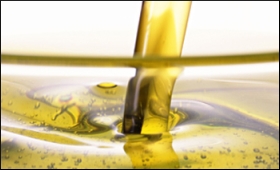|
|
|

|
Bridging India's edible oil gap with mustard oil (Opinion)
|
|

|
|
| Top Stories |
 |
|
|
|
IANS | 04 Jan, 2022
India has always been a predominantly agricultural economy and even
today, around 70 per cent of the population is engaged either directly
or indirectly in agriculture.
However, in spite of being
the world's largest producer of millets and the second largest producer
of wheat and rice, India faces a chronic shortage of edible oil and is
compelled to bridge the demand-supply gap through imports.
Just a
couple of decades ago, India's edible oil imports were around 4 million
tonnes a year. This figure has grown exponentially over the decades and
now stands at 14.03 million tonnes (oil year ending October 31, 2022).
This adds up to an import bill of INR 1.57 lakh crore, which represents
an enormous depletion of our precious foreign exchange reserves.
This
dependence on imports additionally leads to the onset of severe
inflation as demonstrated by recent global shortages. Which caused
edible oil prices to become almost unaffordable for common people. The
demand-supply gap for edible oils is significantly wide and, therefore,
difficult to bridge.
The annual demand for edible oils in India
is around 250 lakh tonnes, while domestic production is much lower -
barely 111.6 lakh tonnes per annum, according to data published by the
Ministry of Consumer Affairs. This creates a gap that varies from 55 to
60 per cent.
It is encouraging to note that the Government of
India is proactively formulating policies and adopting measures aimed at
rectifying this imbalance. The National Food Security Mission has
outlined several action points aimed at increasing production and
productivity of oilseed crops.
These include increasing the area
under cultivation; developing improved high-yielding varieties of
oilseeds; support for agri inputs such as fertilisers and pesticides;
mechanisation of key farming operations to improve productivity; and
providing support to farmers for post-harvest management of oilseed
crops.
On a parallel track, the National Mission on Oilseed and
Palm Oil (NMOOP) is also striving to boost the supply side for oilseeds.
It is very important for mustard to be promoted within the ambit of the
diverse measures being initiated by the Government.
After all,
mustard is an ancient Indian oilseed and an integral part of our
country's agricultural and culinary heritage. It is a remunerative and
profitable cash crop that contributes to farmers' incomes. The oil
extracted from mustard oilseeds is proven to be healthy from a
nutritional perspective; it is also widely used in natural home
remedies, skincare, hair care, Ayurveda formulations and body massage.
In
order to make any meaningful headway, it is essential for mustard oil
to be promoted in a structured manner. To do so, one of the key measures
that we have consistently advocated for is the establishment of a
mustard oil promotion board to implement the policy decisions taken by
the Government, and also to look after the interests of all stakeholders
- farmers, manufacturers, marketers and consumers.
Such an
institution could also be instrumental in promoting Indian mustard oil
across the globe in line with similar activities undertaken quite
successfully by bodies such as the Malaysian Palm Oil Board, American
Soybean Association and the International Olive Council.
One of
the key challenges in bridging the demand-supply gap vis-a-vis edible
oils is to find ways to leverage technology, research, scientific
innovation and grassroots-level interventions to increase the yield of
the mustard crop and bring productivity on a par with Western farming
standards - in terms of both yield and quality. A possible solution
being considered is the introduction of Genetically Modified (GM)
Mustard.
However, there is a discernible difference of opinion
among agricultural scientists, ecologists, researchers and policy
makers. Until such differences are resolved, it is better in the larger
public interest to keep GM Mustard in abeyance. In fact, we too share
these concerns.
As manufacturers and marketers of a well-known
brand of mustard oil (P Mark Mustard Oil since 1933), our concerns are
focused on whether or not the characteristic pungency of mustard oil
will be retained in the GM varieties. Traditional Indian consumers are
accustomed to this pungency and even use it as a measure of purity and
authenticity. Such consumers will be disappointed and dissatisfied if GM
mustard oil fails to deliver on taste, aroma and pungency.
The
need of the hour is to proactively address the demand-supply gap in the
edible oil segment. In this regard, we reiterate that mustard and
mustard oil can definitely play a pivotal role in driving India towards
self-reliance, import-independence, and national pride.
(The
author is the Managing Director, Puri Oil Mills Limited, Promoter of P
Mark Mustard Oil. He can be contacted at
corporatecommunications@purioilmills.com
|
|
|
| |
|
|
|
|
|
|
|
|
|
|
|
|
|
|
| |
| Customs Exchange Rates |
| Currency |
Import |
Export |
US Dollar
|
₹91.2
|
₹89.5 |
UK Pound
|
₹123.35
|
₹119.35 |
Euro
|
₹107
|
₹103.35 |
| Japanese
Yen |
₹57.9 |
₹56.1 |
| As on 22 Jan, 2026 |
|
|
| Daily Poll |
 |
 |
| What is your primary "Make or Break" expectation from the Finance Minister this year? |
|
|
|
|
|
| Commented Stories |
 |
|
|
|
|
|
| |
|